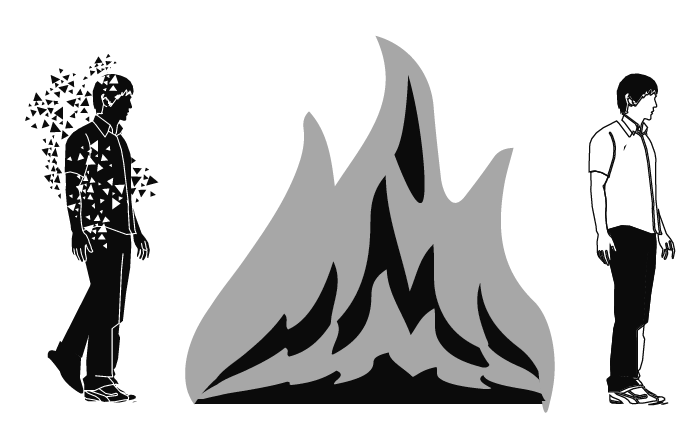It's a phrase he uses every year at this time: Why does time seem to accelerate as we approach the end of the year? The physical, chronological time, the Chronos proceeds regularly in one direction and only following the laws of nature. Kairos is quality time, a time of feeling, free, meaningless, special, atypical time. So begins the 'Diagnosis of the Time' column in the Catholic Peace Weekly.
We have perceived time through certain regular cycles. The signals from nature are the units of day, month, four seasons, and year produced by the rotation and revolution of the earth and moon, the earth and the sun. In this regular cycle, feasts and calendars are created, and they are divided into hours, minutes, and seconds to create the concept of time to establish and create order and efficiency in our lives.
We know the difference between the time we feel at the beginning of the year and the end of the year, the difference between the time in the morning and the time in the evening, the difference between the motivation at the start of a job and the frustration or a sense of accomplishment at the end. However, a tsunami of greater change and chaos is approaching us.
Do you remember the classic fairy tale "Momo" by German writer Michael Ende? If you borrow the contents of this work, we have businessmen dressed in gray suits appearing among us, living together with us in the village community, and calculating how inefficiently we live, and teaching us how to use profitably the time wasted by laziness. Humans who now have to squeeze and save time are increasingly chased by time, always busy, feel nervous, anxious, become obsessive, losing the little happiness they had.
In this deteriorating world, only Momo, the young child, who was living alone because there was no family to rely on, but who listened to the stories of everyone in the village and became friends to all, feels that there is a big problem in the world and begins to look for the cause.
Our reality is no different from this fable. In fact, this fable itself is a resemblance of a culture that has disappeared. We don't have too much time to enjoy daily life, relationships, or nature. Many acknowledge this but why doesn't it change? This is because we have pursued only 'efficiency' we are trapped in the concept of Chronos, the physical time measured by a machine called a clock.
We have built a world where achievements are measured and evaluated solely by material productivity. However, our civilization, which we have believed to be strong, is showing signs of collapse in the face of various challenges. Climate change strikes as a counterattack, environmental destruction, and human-initiated ecological disturbances pour out new viruses.
Momo, the protagonist, acts to restore human time, she follows the turtle that leads the way. Somehow, sharp eyes and agile movements, thieves of time with fast feet, and gray-suited humans cannot find the slow-moving turtle and Momo.
It's a paradox. We too must restore the aesthetics of slowness. You should feel the sunshine, the warmth, taste of tea, be happy with the softness of the cat's fur, and enjoy a relaxed conversation.
Finally, the writer wants to share the secret with the readers. In November, you feel depressed that this year is over and decide to start anew from next year, do not plan, do it now. Dates are just imaginary numbers recorded on the calendar— So now, not tomorrow.





